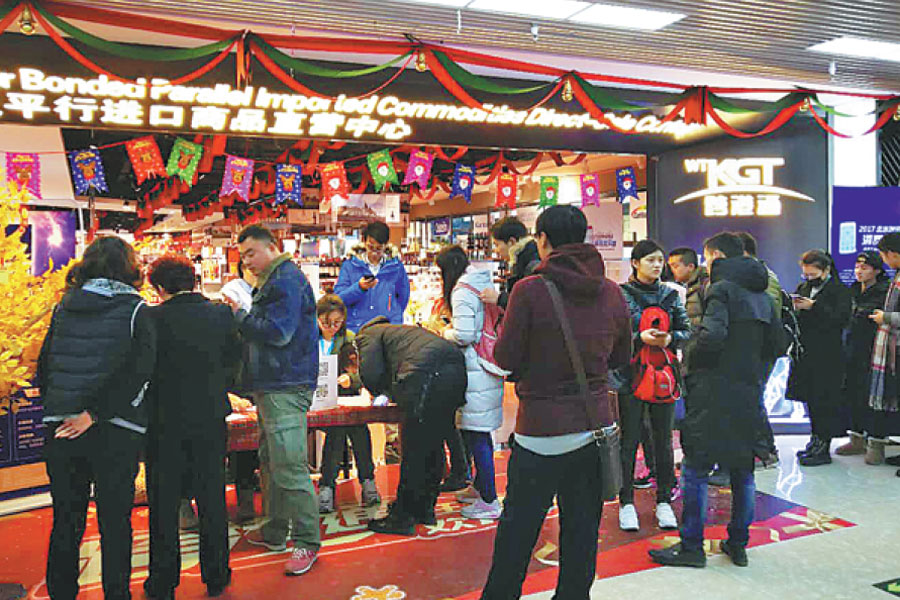Festival fare: Imported food gains ground


Amazon China, which started a monthlong promotion for nianhuo products in early January, said domestic consumers' growing appetite for high-quality overseas commodities has fostered a cross-border e-commerce boom across the country.
According to a recent survey conducted by Amazon China and market consultancy Data 100, most of the respondents preferred to buy cross-border goods from online platforms at least twice a month in 2018. More than half of those surveyed said their average monthly spend hit over 2,000 yuan ($294).
Considering the geographical distribution of cross-border online shopping, Beijing, Shanghai, and Guangzhou and Shenzhen in Guangdong province topped in terms of citizens' purchasing power, followed by new first-tier cities such as Tianjin, Hangzhou in Zhejiang province, Chengdu in Sichuan province, Wuhan in Hubei province, and Nanjing and Suzhou in Jiangsu province.
While top-tier cities still lead the cross-border online consumption, many other cities are showing great potential.
More than 30 percent of the respondents in Chongqing, Wuhan, Xi'an in Shaanxi province and Nanjing said over half of their online orders are cross-border online shopping. With a monthly expenditure of more than 10,000 yuan, Nanjing consumers purchase online imported products over four times a month, taking the top spot on the cross-border online shopping consumption.
Jiuquan in Gansu province, Xiantao in Hubei province, Zhumadian in Henan province and Guang'an in Sichuan province are among the fastest-growing cities list in terms of imported goods sales volumes on Amazon platform. Among them, Jiuquan witnessed a 120 percent year-on-year growth in 2018.
In 2018, the total volume of retail import and export commodities through the customs cross-border e-commerce management platform surged by 50 percent to 134.7 billion yuan, with imports up 39.8 percent to 78.58 billion yuan, according to the General Administration of Customs.
A report by market research company iiMedia Research shows the number of Chinese consumers who purchase imported goods once a week surged by 8.5 percent year-on-year in the first six months of 2018.
More than 40 percent of those surveyed said their cross-border purchases are mainly driven by the desire to try popular overseas products. Another 41.9 percent said their chief consideration is to find cost-effective goods.
Data from Chinese e-commerce giant Alibaba Group Holding Ltd also backed up the increasing cross-border shopping boom.
According to a recent report released by Alibaba's dedicated portal for cross-border e-commerce Tmall Global and CBNData, the blossoming cross-border e-commerce has gradually become a new part of people's daily life.
"Compared with their parent generation, the post-1990s and post-1995s generations love chasing the trend. Usually, they love to shop small-group commodities and high-quality goods, asking for more diversified and international selections," said Liu Peng, general manager at the import and export division of Tmall.
























